On the occasion of this interview, Kim, actor Jung Woo-sung and producer Kim Won-guk are attending the Far East Film Festival in Udine, northeast Italy, for the first international festival screening of their film.
12.12: The Day drew a staggering 13 million South Koreans to cinemas late last year, on its way to becoming the fourth highest grossing South Korean film of all time with takings of 120 billion won (US$88 million).
Perhaps surprisingly, the film wasn’t seen as a sure-fire hit.
12.12: The Day begins in the immediate aftermath of the assassination of President Park Chung-hee on October 26, 1979, and shows the plotting and execution of the military coup that took place 47 days later.
It is the first major film to deal with these events, although, as Jung notes in Udine, the influential 2005 TV series 5th Republic told the same story.
The film ends at the start of Chun’s rule, and considering this would become the darkest era in South Korean history, it is hardly fodder for a happy ending, as all those who bought tickets to see 12.12: The Day knew well before they entered the cinema.
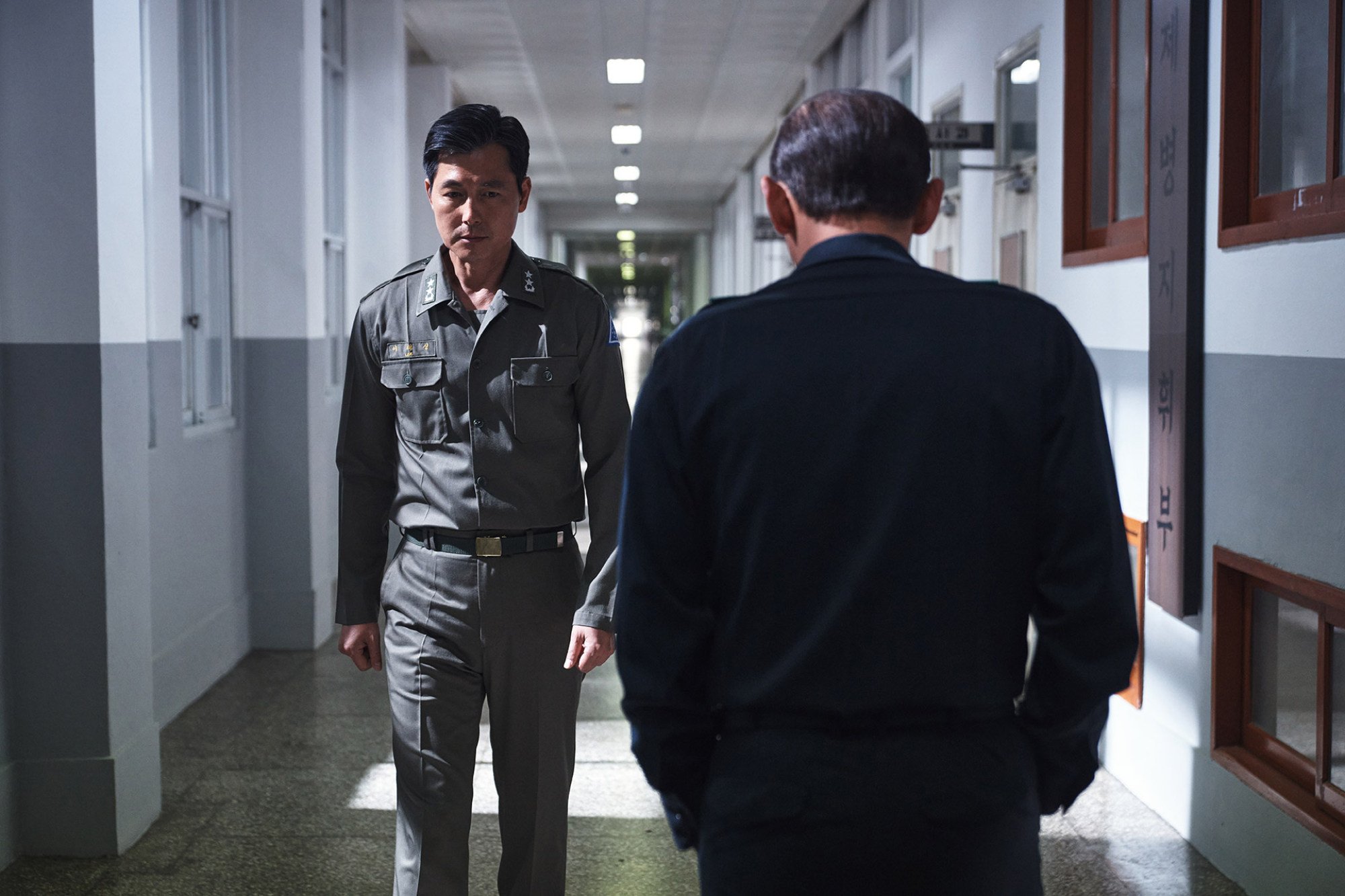
“I worried it wouldn’t be fun to watch a film with a predetermined ending, but we couldn’t change history, so how can we keep the story interesting?” says Kim Sung-soo. The director says he was considering this throughout the making of 12.12: The Day.
“I felt we could only achieve this by crafting a dense storyline and focusing on unexpected events unfolding along the way,” he adds.
The events of December 12, 1979, did not become public knowledge until a presidential inquest in the mid-1990s.
Jung and Kim Won-guk, who were too young at the time, do not have clear memories of the coup, news of which was suppressed. They have far clearer memories of the death of President Park several weeks earlier, when older people around them wept openly.
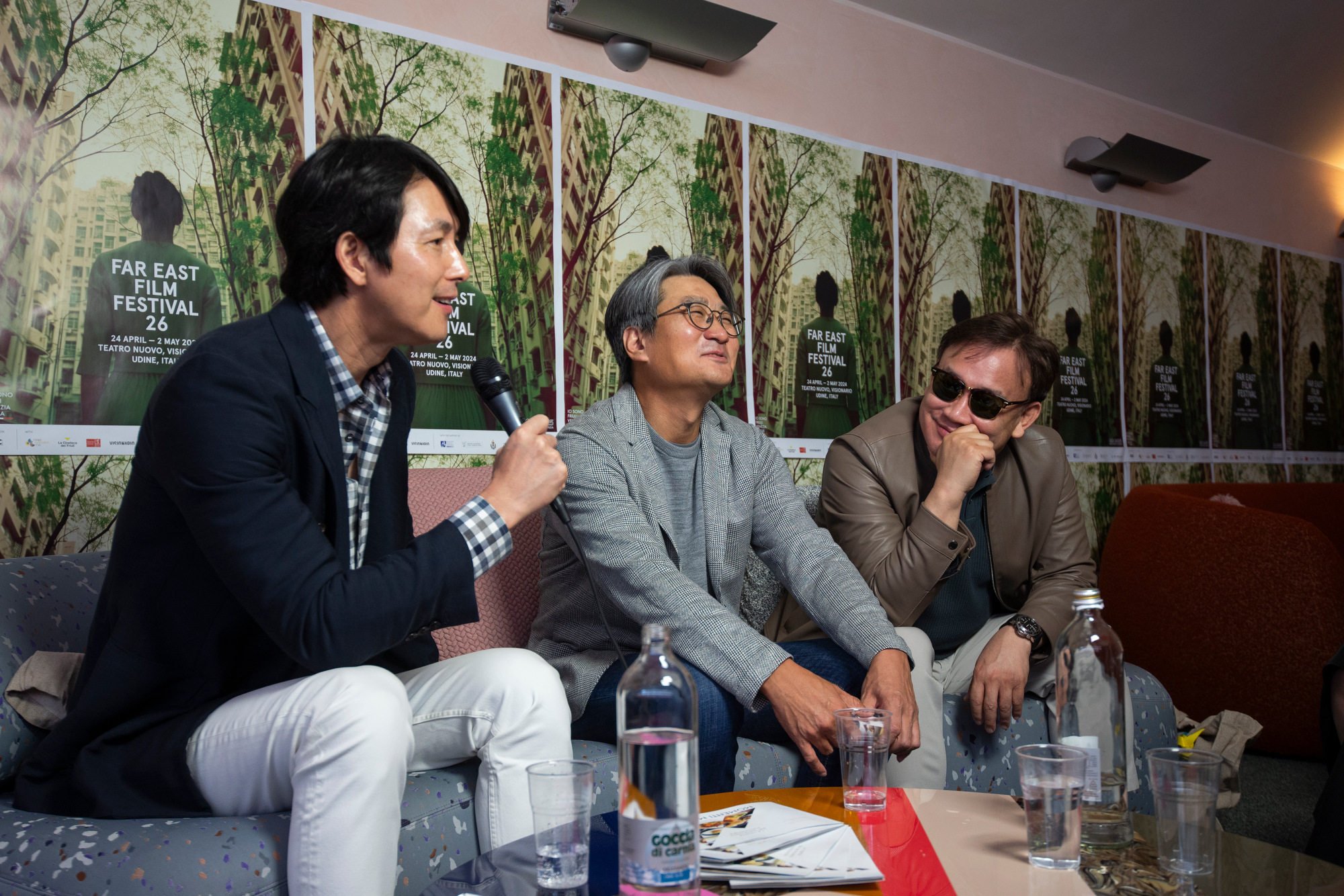
Kim Won-guk does reveal, however, that he had a friend whose father was a member of Hanahoe (“Group of One”), the secret and fiercely loyal group of military men led by Chun that orchestrated the coup.
Kim Sung-soo, on the other hand, was 18 at the time of “12.12” (as the coup is known in Korea) and happened to live not far from where some of the events of that night took place.
“I saw armoured vehicles passing through my neighbourhood. This wasn’t a common sight so I followed them to see what was going on. The office of the army’s chief of staff was next to my old primary school and I heard gunshots from there,” he recalls.
“Then they cut off the electricity supply, causing a blackout, and I could see the lights of military vehicles where the gunshots were coming from.”
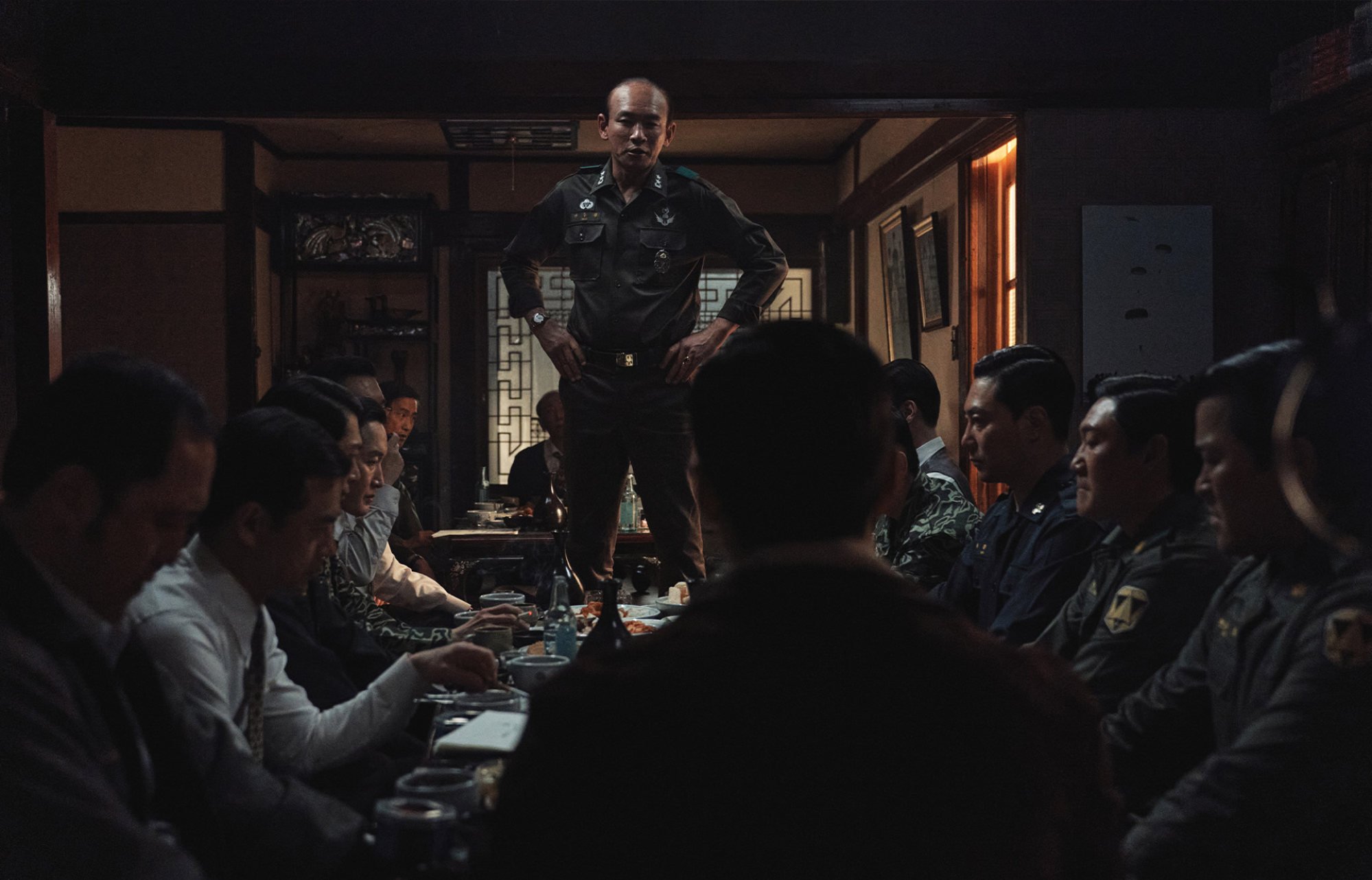
Yet even though the teenage Kim was within earshot of the violent events that changed the course of Korean history, he, and the rest of the country, would not learn about what really happened that night for another 16 years.
12.12: The Day needed a protagonist for the audience to follow, and that role falls to Jung, who plays General Lee Tae-shin. His character is based on Jang Tae-wan, the Seoul garrison commander who stood up to Chun Doo-hwan on the night of the coup; Chun Doo-gwang, the character based on Chun Doo-hwan, is played by Hwang Jung-min.
Jung explains that “at that time, Korea was not able to recognise what democracy was and what communism was”.
Reflecting on how he reconciled the two sides of his character, who was both part of a military dictatorship and stood up to a future despot, he says: “I played a character who hadn’t really established what a legitimate leader in a democracy should look like. He was trying to interpret what his role was as a soldier was, and how he should fulfil that duty.”
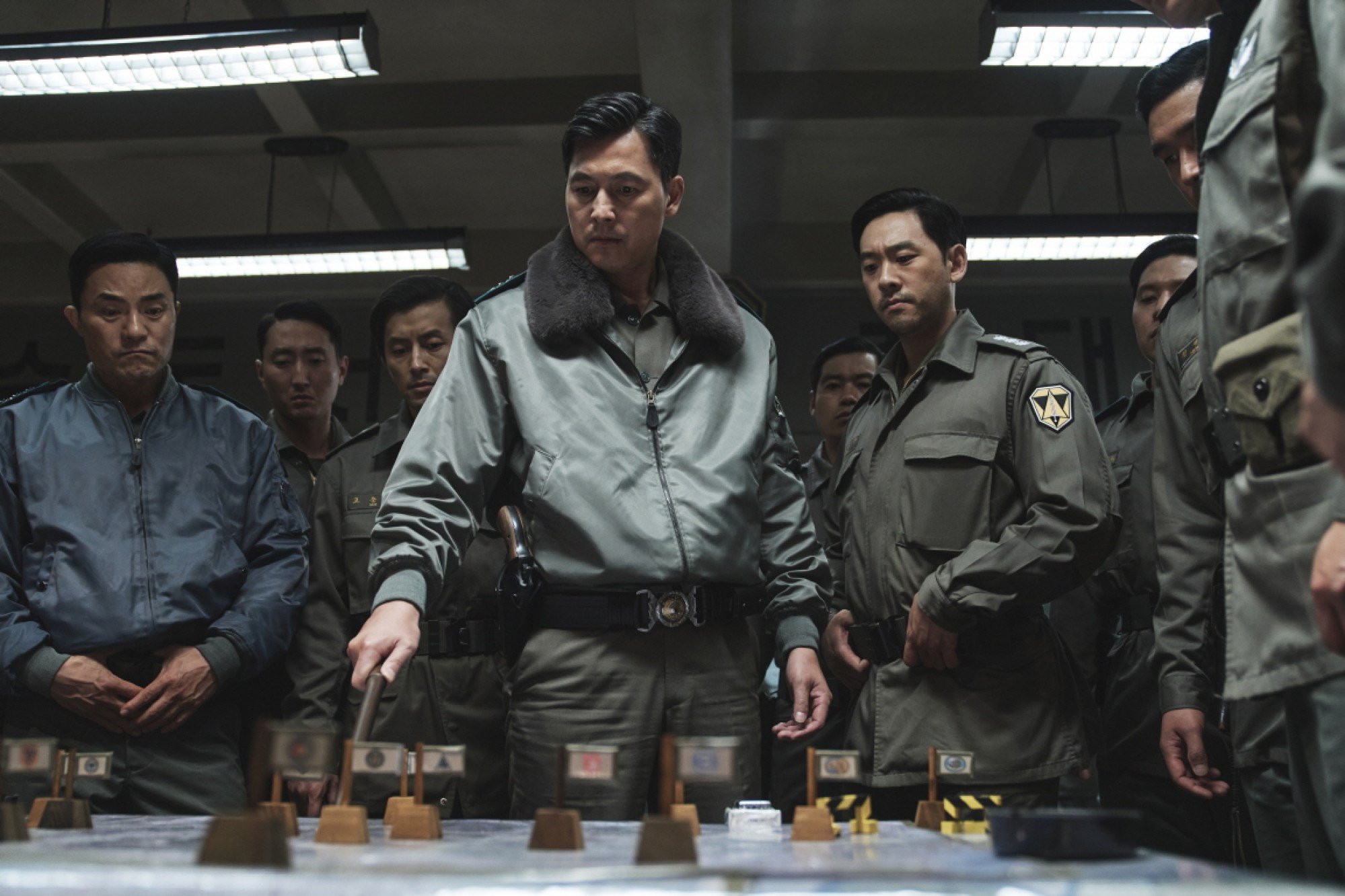
As a producer, Kim Won-guk is no stranger to taking risks on films that dramatise dark moments in 20th-century Korean history.
His previous credits include The Man Standing Next, about the assassination of Park Chung-hee, and The Last Princess, about the tribulations of the last princess of the Joseon Kingdom, who was forced to move to Japan when it made Korea a colony and later made to marry a Japanese aristocrat.
He explains that even after Roh Tae-woo succeeded Chun Doo-hwan as Korea’s first directly elected president in 1988, it was impossible to bring this story to the screen.
“Korea has constantly switched between conservative and liberal governments, so it was important for us to create an environment where we could make this movie within that political reality,” he says.
Both Jung and the director credit Kim Won-guk as a “courageous producer” without whom the film could never have been made.
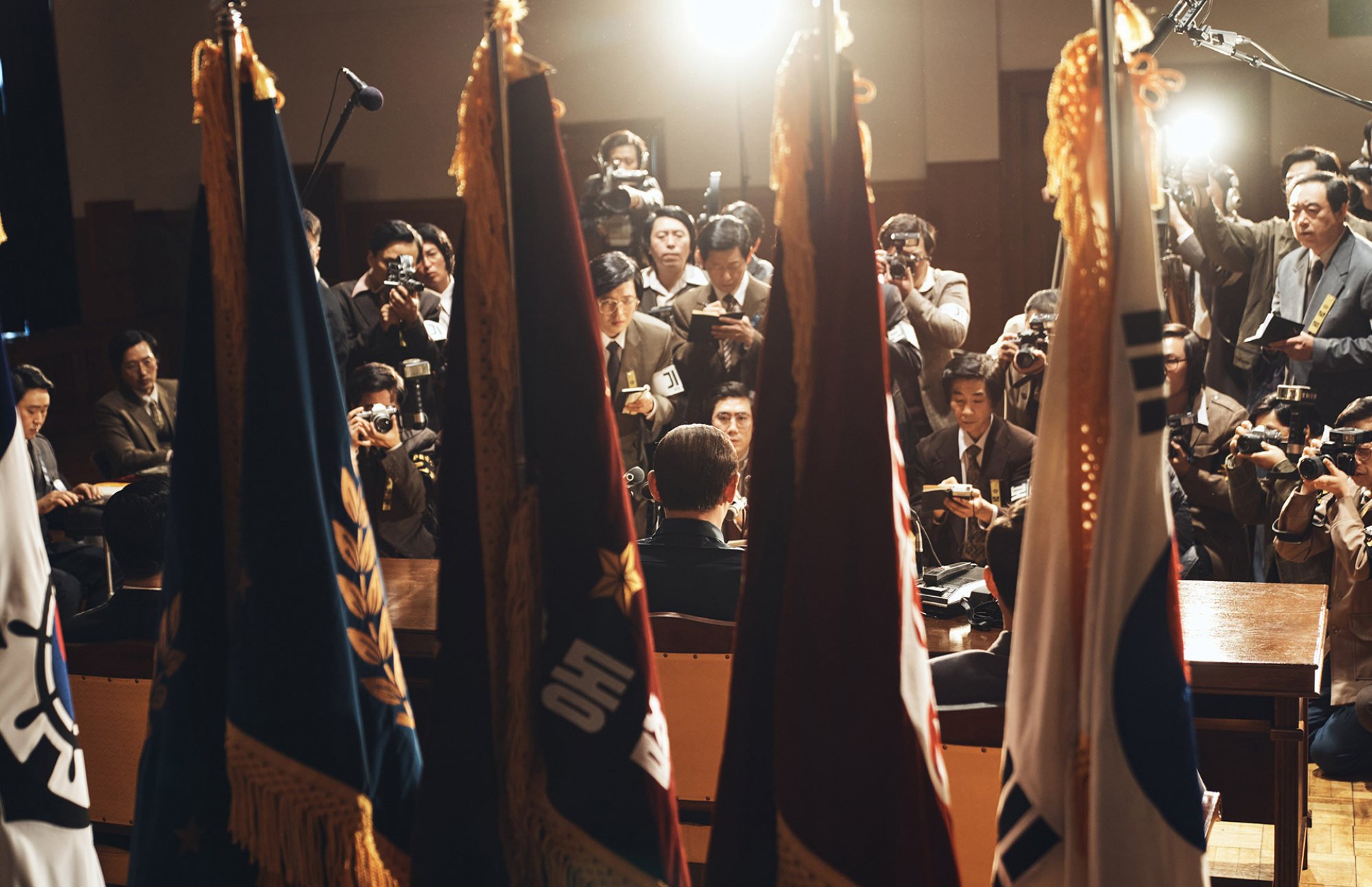
For his part, the producer credits viewers. “Korean audiences are very interested in modern events and topics and are passionate about politics. I feel the same way, which helped me decide to make a story like this.”
12.12: The Day is a critical and commercial high point in the filmographies of both Jung and Kim Sung-soo, but it is far from the first time actor and director have worked together.
Early in their respective careers, they teamed up on the gangland youth classic Beat, and this production is the fifth on which they have collaborated in 26 years. That makes theirs one of the longest ongoing partnerships in the Korean film industry.
However, it could have been even longer. Kim reveals that Jung turned down an offer to star in his debut film, Runaway, in 1995, a role that eventually went to Lee Byung-hun.
Yet, as Jung says: “Having a good relationship doesn’t necessarily mean working together for a long time. It’s also important to have a director who can make you feel tense and stimulated on set.”
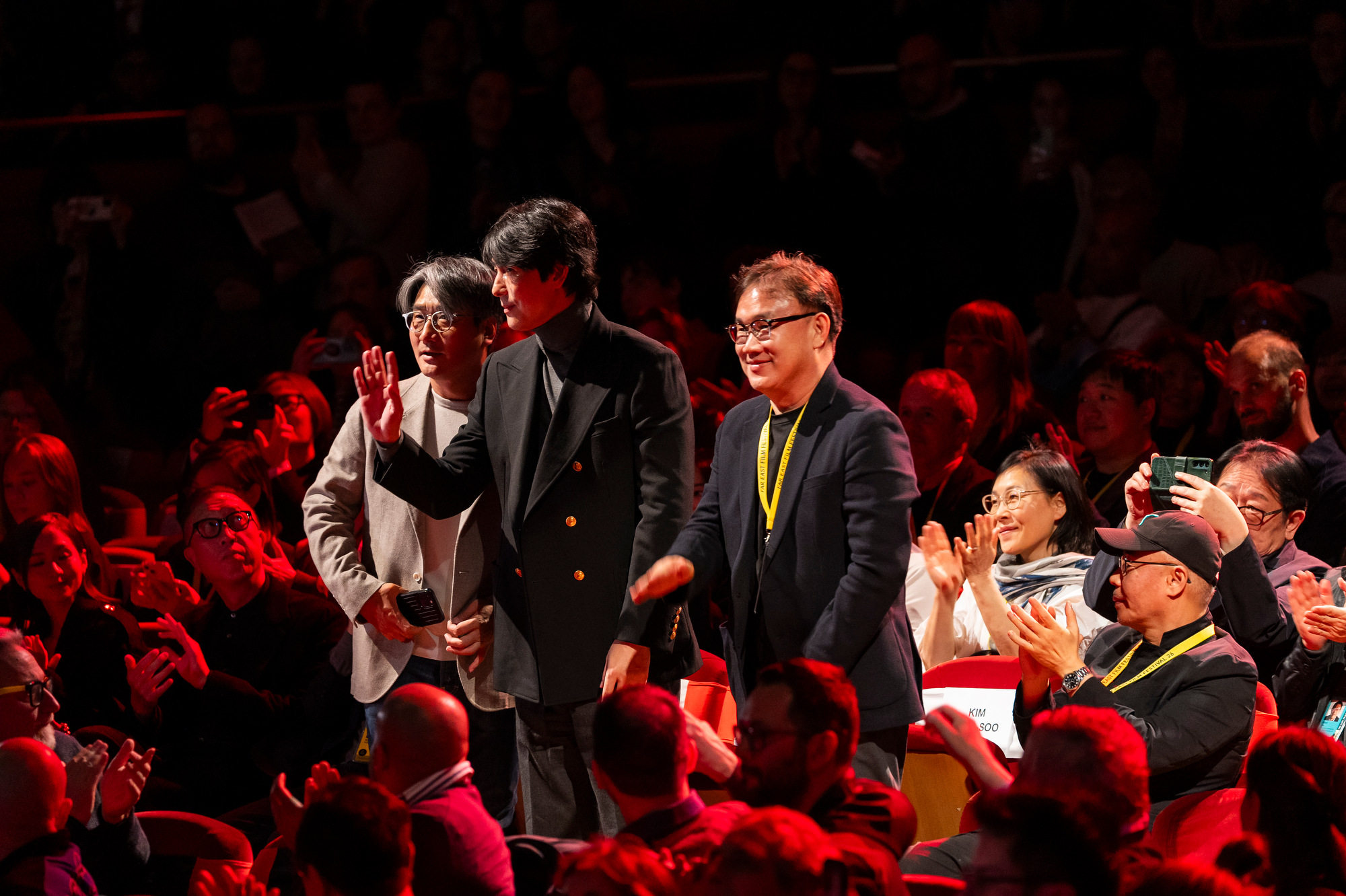
Kim adds: “The exchange of ideas and world views is what has kept our relationship going as we’ve aged.”
He sees them as “good companions who can rely on each other”, and hopes that they will have more opportunities to work together in the future.
Given the rapturous reception for 12.12: The Day at home and during its Udine festival premiere, they will not be the only ones hoping for a swift cinematic reunion.

